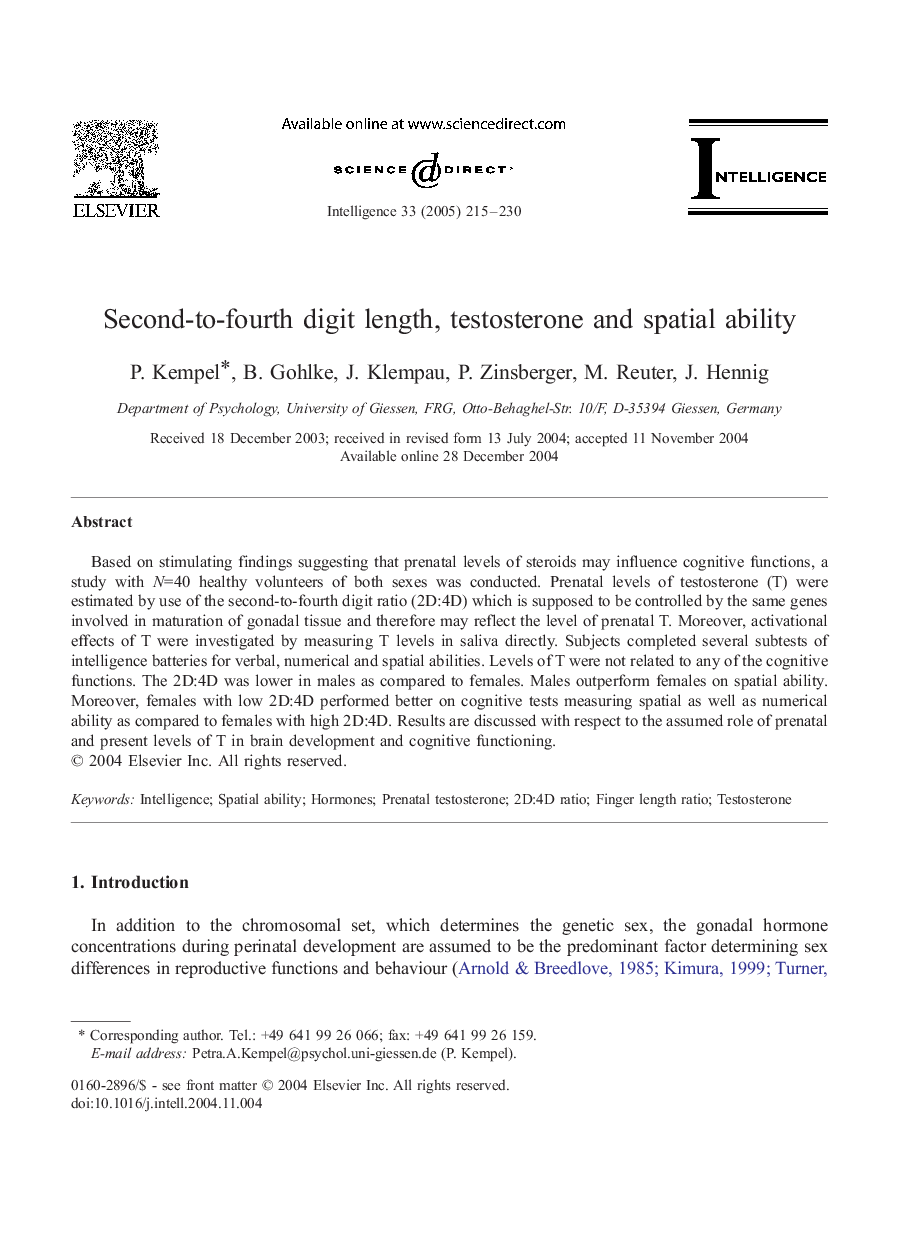| Article ID | Journal | Published Year | Pages | File Type |
|---|---|---|---|---|
| 10459509 | Intelligence | 2005 | 16 Pages |
Abstract
Based on stimulating findings suggesting that prenatal levels of steroids may influence cognitive functions, a study with N=40 healthy volunteers of both sexes was conducted. Prenatal levels of testosterone (T) were estimated by use of the second-to-fourth digit ratio (2D:4D) which is supposed to be controlled by the same genes involved in maturation of gonadal tissue and therefore may reflect the level of prenatal T. Moreover, activational effects of T were investigated by measuring T levels in saliva directly. Subjects completed several subtests of intelligence batteries for verbal, numerical and spatial abilities. Levels of T were not related to any of the cognitive functions. The 2D:4D was lower in males as compared to females. Males outperform females on spatial ability. Moreover, females with low 2D:4D performed better on cognitive tests measuring spatial as well as numerical ability as compared to females with high 2D:4D. Results are discussed with respect to the assumed role of prenatal and present levels of T in brain development and cognitive functioning.
Keywords
Related Topics
Social Sciences and Humanities
Psychology
Experimental and Cognitive Psychology
Authors
P. Kempel, B. Gohlke, J. Klempau, P. Zinsberger, M. Reuter, J. Hennig,
